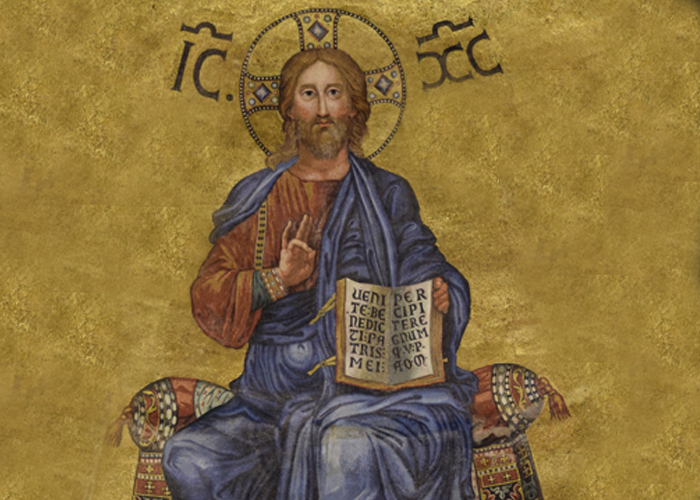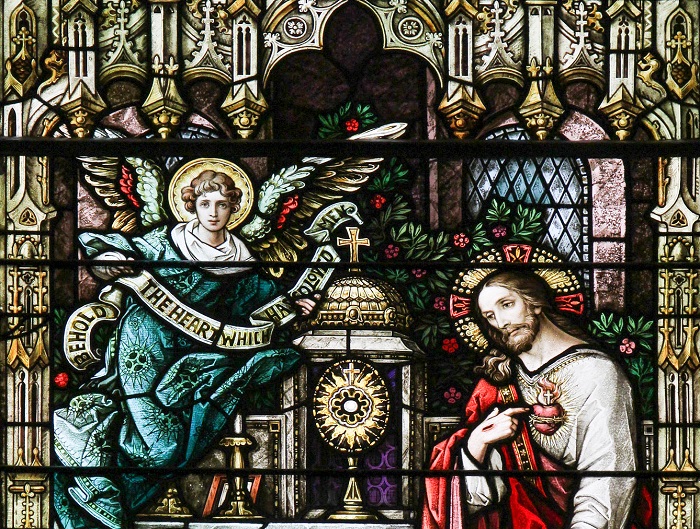
On the last Sunday of the Church’s liturgical year we celebrate the Solemnity of Christ the King. Pope Pius XI instituted the Feast in 1925 with the Encyclical Quas Primas so that the Church may honour Christ’s kingship and meditate on what it means to be subject to His ‘sweet’ rule. Indeed, the feast is the ‘crown’ of the Liturgical year as we draw to a close the meditation on the mystery of Christ’s life with the thoughts of the establishment of His kingdom on earth.
In the context of a world that was becoming increasingly secularised, religion segregated to the margins of public life and the fervour of the faith was growing cooler, the Holy Father wanted to call on everyone to allow Christ to reign in their hearts, minds, wills to such an extent that Christ’s rule encompasses every aspect of their lives. (cfr. Quas Primas n.33)
The Gospel reveals the nature of Christ’s kingship. He died on the cross with the title “King” – “King of the Jews” written above His head. It was in His death that His Kingship was recognised. Before Pilot He rightly declared, “My Kingdom is not of this world” (Jn 18:36) and so the Lord came to establish His kingdom on earth, not by force but by love. There is no greater testimony of Christ’s love for us than His death on the cross which reconciles us to God and enable us to enter the Kingdom of God as co-heirs with Him. It therefore naturally follows that, with such a great gift, we should recognise Him as our King and Saviour.
Our recognition of Christ as King becomes tangible when we allow His law or commandment of love to rule in our hearts and orientate our actions towards the Kingdom of God. The Lord gave us the commandment to love God and “one another as I have loved you” (Jn 13:34) and so we are bound to look towards our neighbour with the same loving sentiments as Christ. Indeed, when we love our neighbours, we enable the Kingdom of God to rule on the earth. To the extent that mankind, and the societies they form, are guided by Christ’s rule, then we can experience the Kingdom of God on the earth. It is not therefore surprising that the feast was instituted to call on all people to allow the Christian ideal to guide our personal lives and those public institutions and governments that rule for the common good. The encyclical Quas Primas teaches that “once men recognise, both in private and public life, that Christ is King, society will at last receive the great blessings of real liberty, well-ordered discipline, peace and harmony.” (Quas Primas n.19)
In one of the petitions of the Our Father we pray for the God’s “Kingdom to come” and that His “will be done on earth as it is in heaven.” The Solemnity of Christ the King reminds us that these words should not be prayed by custom or tradition but rather that they represent the commitment to respond to Christ’s love for us and to face the challenge to live lives worthy of the Gospel. Living the Christian life to the full gives mankind the means of changing the world to make it a better place as it becomes ever more a truer reflection of God’s kingdom on the earth.

Christ the King rules with a loving heart.
To honour our Lord as King, Pope Pius XI recommended the dedication of all mankind to the Sacred Heart of Jesus. This devotion is important because Our Lord appeared to show us, “His heart that burns with love for men.” The Sacred Heart is a symbol of the infinite love of Christ which then moves us to love one another. We are reminded that it is with this Heart that the Lord rules! It makes sense therefore to dedicate ourselves to the service of such a King and to place ourselves under the protection of Him who has been granted all power in heaven and earth (Mt 28:18). What better way to celebrate this Solemnity than to dedicate ourselves to Jesus Christ, King of the Universe!
Prayer of dedication of the Human Race to Jesus Christ King of the Universe
At the base of the obelisk in St Peter’s Square, Rome is the phrase:
Cristus vincit, regnat, imperat; ab omni malo plebem suam defendat.
Christ conquers, Christ reigns, Christ rules. May He defend His people from all evil.
This powerful phrase is written in the present tense. Christ conquers, reigns and rules today in the stories of our individual lives. Therefore on this Solemnity we should honour Him as our King…today, tomorrow and forever!
